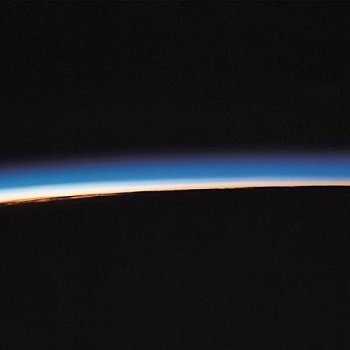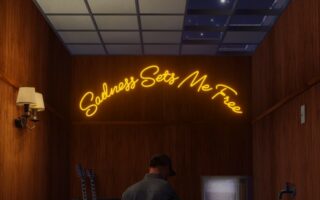 The Kooks recently announced they are re-releasing their debut album from 2006 – the same year as Mystery Jets debuted theirs.
The Kooks recently announced they are re-releasing their debut album from 2006 – the same year as Mystery Jets debuted theirs.
Since then, the trajectory of these two homegrown indie bands couldn’t have split sharper. For the latter, a band never without precedence but always at least trying to look forward, the gimmick of regurgitating the recent past couldn’t feel more of an anathema to their shaggy-haired spirit. Though the last time we heard from Mystery Jets, they were cantering off awkwardly into the sunset of their Americana dreams on ‘Radlands‘.
Nearly four years on, and the south London lot have come to their senses and more or less arrived back home, via space, for their fifth outing ‘Curve Of The Earth‘.
With Jack Flanagan now officially on bass duties after the departure of Kai Fish in 2012, it is self-touted as their “most personal” album yet. Track-wise at least, it is also their shortest album yet, with just nine songs to lather yourself up on.
Adieu frivolities of annoyingly infectious ‘Hale Bop‘, guilty rave-alongs of ‘Show Me The Light‘ and 80s spandex of ‘Two Doors Down‘. Enter a more collected, mature if you will, batch of numbers from a literally long overdue record. The band admitted the recording of the self-produced album took much longer to finish off than they had planned. Spilling such honest beans can only lead to high expectations of near perfection, if not some return to form.
For all the big beginnings of the opening track, Blaine Harrison takes to singing about the minutest of things — namely the ends of chromosomes, called telomeres. Foals-ian in scope, ‘Telomere‘ is a yawning space of a song chased from the off by half-baked, repeating guitar notes that would jar if it weren’t for the chunky piano and zealous drumming swishing over them.
As far away as that period now feels, skid marks of the previous album’s Route 66 road trip are left on ‘Bubblegum‘, but more with the rushed modernity of The War On Drugs than last time’s measured ‘Exile On Main St.‘ attempt.
Announced by a snippet of David Thwelis’ clever bully of a character from Mike Leigh’s Naked, ‘Midnight’s Mirror‘ sweats out the agonies of the morning after the night before. Thudding verses float off into falsettos of regret on the chorus (“no matter how much little or much I take, there’s no limit to the low”) in the darkest, and one of the most brilliant, tracks they’ve ever produced.
Halfway through and ‘1985‘, ‘Blood Red Balloon‘ and ‘Saturnine‘ could all chain together as one big gaping stare at the Universe. “Saturn will return us back to 1985, when we was just a spark in two young star-crossed lover’s eyes”, Harrison wishes ungrammatically on piano-led ‘1985’, the album’s softest moment with a grandiose outro hinging on the arena-geniality of Coldplay parlance.
Melodically, ‘Blood Red Balloon’ jogs along without so much as pausing for breath, while lyrically it takes a minor cue from poet William Blake in, “See heaven in a grain of sand”. Their own push at airy pop song-poesy, and not always hydro-themed mind you, is noteworthy not just on ‘Blood Red Balloon’ but on ‘Saturnine’ as well, a song that spins around its own centre of reverb-lashed harmonies and stomped by six-inch Ziggy Stardust heels all over the guitar solo, ‘Moonage Daydream‘ style.
‘Taken By The Tide‘ is Band of Horses‘ ‘Funeral‘ in disguise, scattered with drops of dialed-up heavy metal
riffing — yes you can now mosh, be it briefly, to Mystery Jets — all chucked in before a wink or two of psychedelic organ ta-ras it off.
The questioning, reflecting and general soul-searching that props up the whole album closes on ‘The End Up‘, a slow, acoustic shuffle with a mantric chorus that is at once as irritating as it is easy to lie back and peacefully repeat over and over (and over and over).
Who knows what they do up there on the ISS when they’re not experimenting on themselves, but British astronaut Tim Peake could do far worse than listening to ‘Curve Of The Earth’ whilst watching its namesake from out of the Cupola window.
In fact he’d probably, almost, love it.



